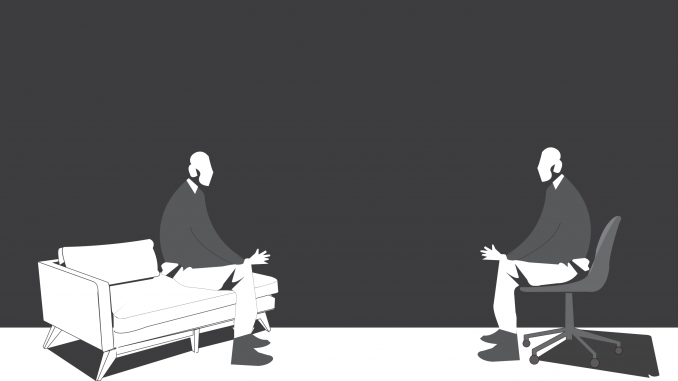

As a graduate student majoring in mental health counseling, I’ve studied and done research in various areas, from affective disorders to personality disorders, with mental illness becoming the focus of my education.
What I have observed, however, is that we mostly focus on the mental well-being of patients exclusively, often avoiding conversations about the prevalence of depression and anxiety affecting mental health care providers.
Nearly 70 percent of clinical psychologists experience mild to moderate depression, with 42.1 percent experiencing anxiety, according to a 2018 study by the University College London.
Mental health practitioners deal with physically and emotionally exhausting work days, with about half of psychiatrists experiencing burnout, according to a 2016 study at Antioch University. This burnout can exacerbate existing mental health issues, especially if professionals experiencing mental illness do not seek help.
We need to advocate for heightened awareness for mental health practitioners struggling with mental illness, and this begins with all mental health professionals acknowledging the prevalence of this issue in the clinical field.
Only 42 percent of practitioners experiencing mental illness would be willing to tell their own family and friends about their condition, Psychiatry Advisor reported in 2015.
This hesitation to share one’s struggles stems from a stigma in our field surrounding depression, because it is often discourages mental health practitioners from disclosing their own struggles for the sake of professionalism.
“Stigma is a huge barrier to folks seeking help,” said Janie Egan, the mental well-being program coordinator for the Wellness Resource Center. “The whole issue with stigma is that folks tend to equate feeling bad with being bad. By experiencing some kind of mental health concern, we can get into these thought patterns of ‘there’s something wrong with me because I’m feeling this way’ and we feel like nobody else feels the same way.”
“What I try to emphasize in my interactions with mental health clinicians and trainees is our humanness,” said Crystal L. Austin, an assistant professor of psychological studies in education. “We can be professionals and experts but we are humans above anything else and have our own needs for care and support.”
Therapists, clinicians and psychiatrists should look out for warning signs of mental illness in their colleagues and regularly encourage one another to open up about their mental health issues in order to break this stigma.
“We do have a responsibility to help protect one another,” said Daniel Walinsky, an associate professor of psychological studies in education whose research focuses on mental health and counseling psychology. “So occasionally ask one another, how are they doing. Not because your folks are necessarily at risk, but because it is decent and appropriate to practice showing that you care, by asking somebody how they are doing.”
“Ask your colleagues and your faculty about it and if you are starting out as a new practitioner, walk on the side of caution by seeking guidance and supervision,” Walinsky added, referring to mental health professionals dealing with mental health issues.
Mental health practitioners should disclose their own struggles and welcome their colleagues to do the same.
The well-being of those looking after us is at stake for as long as we let this issue go unnoticed.
Everyone deserves the freedom to seek help for their mental health if they’re struggling, and mental health practitioners are not an exception to that right.



Be the first to comment